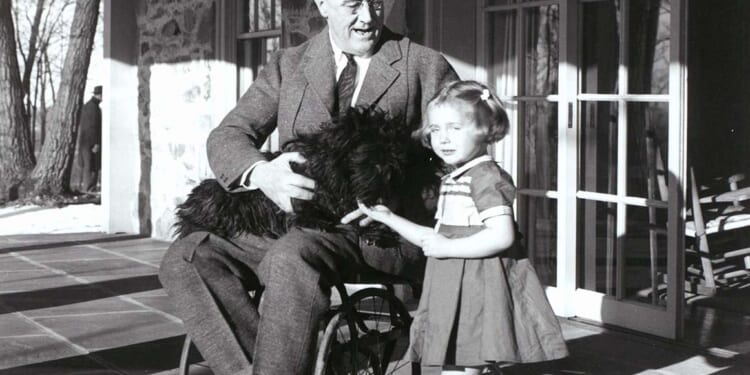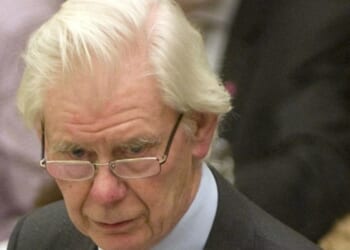When the St. Petersburg Times first launched PolitiFact in 2007, its purpose was to assess the veracity of statements made by “members of Congress, the president, cabinet secretaries, lobbyists, people who testify before Congress and anyone else who speaks up in Washington.”
Fast forward to September 2025, and the trailblazing fact-checker has been reduced to informing us that “President Donald Trump is alive.” Yes, and the sky is blue, and the day ends in y, even if some online randos may be memeing to the contrary.
The trivial episode of Trump’s rumored demise illuminates what the future intersection of politics and information might look like. POTUSes and their handlers will go to fantastical lengths to lie about presidential health crises, history demonstrates; what changes over time is how they get away with it.
Grover Cleveland, for example, traded on his considerable reputation as “The Honest President” to not only deny the factual newspaper report that what had been billed as a four-day yachting vacation in 1893 was actually major oral surgery to remove a cancerous tumor on the roof of his mouth, but also to successfully disparage the reporter as a fabulist disgrace to journalism.
Edith Wilson, the Jill Biden of a century ago, cut off nearly all access to her husband Woodrow after his October 1919 stroke while he was president, making his final 17 months in office an unelected co-presidency at best. She and his complicit medical team (who took care to avoid the word stroke, preferring exhaustion) successfully pulled off a single, risky, stage-managed afternoon meeting with two suspicious senators, during which Woodrow Wilson’s paralyzed side was covered by a blanket. The president was able to rally enough to mollify (if on a secondhand basis) the 100 or so reporters waiting downstairs.
Edith Wilson also helped arrange a glowing, Pulitzer Prize–winning New York World profile by Louis Seibold in June 1920, showing her husband to be a hale, active, and sharp-witted operator. It was, alas, a work of fiction.
How was Franklin Delano Roosevelt able to conceal his debilitating congestive heart failure, diagnosed in March 1944—an election year that he (unlike Wilson in 1920) was still competing in? For one, he and his team had had 23 years’ worth of experience working with a mostly compliant and occasionally intimidated press to conceal and suppress visual evidence of his polio paralysis. For another, it was a war year, back long before our modern yearslong presidential election marathons. The actual campaign didn’t really begin until late September, and the president did manage to propel himself through a few vigorous days on the hustings.
It also helped that FDR’s personal physician, Vice Admiral Ross T. McIntire, was an extravagant liar. In January 1944 he insisted his boss “was in better health than at any time since he entered the White House,” and then in the fall that “the president’s health is perfectly OK. There are absolutely no organic difficulties at all.”
That kind of carnielike bluster would have sounded antiquated to our ears a decade ago, but in the era of Trump-Biden-Trump it feels more like standard operating procedure. In 2017, Trump reportedly dictated to his own doctor that he use the phrase astonishingly excellent to describe his health; Biden, meanwhile, had a Jill Biden–organized phalanx around him at all times to wall off evidence of decline and trash the reputations of journalists and public servants who dared say out loud what two-thirds of Americans had no trouble seeing with their own eyes.
That latter cover-up, still astonishing to contemplate, suggests how future presidential infirmities will be scripted. Against a backdrop of artificial intelligence and the institutional collapse of the journalism industry, fakery no longer requires bribing or even bullying reporters, especially if they are inclined toward your side. Congress is considerably more pliant and less relevant than in past cover-ups (Ronald Reagan’s Alzheimer’s, John F. Kennedy’s Addison’s disease, et al.), so institutional competition and same-side political rivalry barely register.
Perhaps the only meaningful remaining brake lies with the citizenry, which has no shortage of expressive outlets. Maybe there’s a good reason for PolitiFact to fact-check Americans far outside the halls of professional political discourse: We might be the last ones left who still genuinely care about being lied to.

















